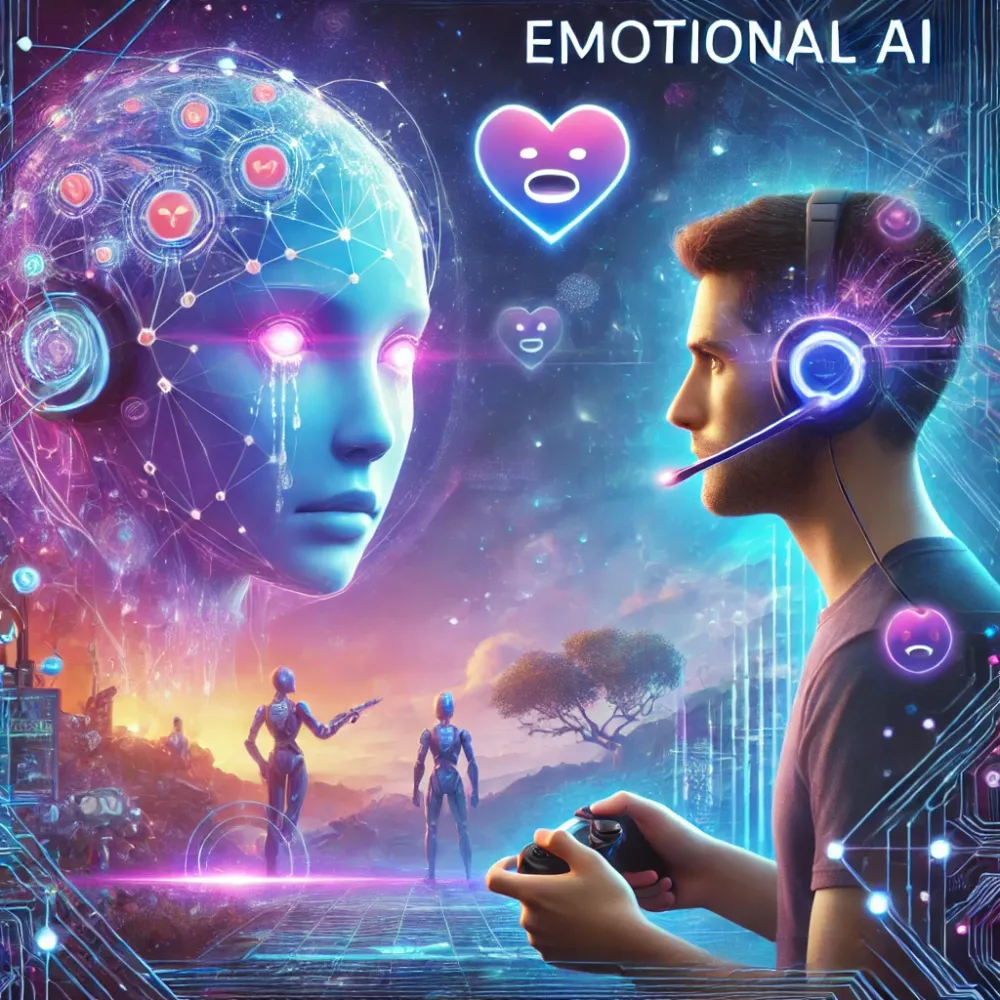Emotional AI: How games are evoking real emotions in players
The integration of Emotional Artificial Intelligence (Emotional AI) is revolutionizing player engagement. By enabling games to recognize, interpret, and respond to human emotions, Emotional AI creates immersive experiences that resonate on a deeply personal level. This article delves into the mechanisms of Emotional AI, its applications in gaming, and the profound impact it has on player experiences.
Understanding emotional AI in gaming
Emotional AI refers to systems capable of detecting and responding to human emotions through various inputs such as facial expressions, voice tones, and physiological signals. In gaming, this technology allows for real-time adaptation to a player's emotional state, enhancing immersion and personalization.
Key Components:
- Emotion detection: Utilizing sensors and algorithms to assess a player's emotional state.
- Adaptive response: Modifying game elements like difficulty, narrative, or character interactions based on detected emotions.
- Continuous learning: Employing machine learning to refine responses over time, aligning with individual player preferences.
Applications of emotional AI in gaming
- Adaptive gameplay: Games can adjust their difficulty levels, pacing, or challenges in response to a player's emotional cues, ensuring a balanced and engaging experience. For instance, if frustration is detected, the game might offer subtle assistance to prevent disengagement.
- Dynamic storytelling: Emotional AI enables narratives that evolve based on player emotions, leading to personalized story arcs. Characters can exhibit empathy, react authentically to player decisions, and create a sense of genuine interaction.
- Enhanced Non-Player Characters (NPCs): NPCs equipped with Emotional AI can interpret player emotions, resulting in more realistic and meaningful interactions. This depth fosters stronger connections between players and in-game characters.
- Immersive Virtual Reality (VR) experiences: In VR settings, Emotional AI can heighten immersion by tailoring environments and scenarios to the player's emotional responses, creating a more engaging and personalized experience.
Case Studies
- "Nevermind" by Flying Mollusk: This psychological thriller utilizes biofeedback to monitor player stress levels, adjusting the game's difficulty and environment accordingly. Higher stress levels lead to more challenging scenarios, encouraging players to manage their emotions effectively (Aimultiple).
- "Herika" Mod for Skyrim: The "Herika" mod introduces an AI-driven companion capable of engaging in unscripted, responsive interactions with the player. By analyzing player behavior and emotional cues, Herika adapts her dialogue and actions, enhancing the sense of companionship and immersion (The Verge).
Benefits of Emotional AI in Gaming
- Increased engagement: Personalized experiences that resonate emotionally can lead to longer playtimes and deeper investment in the game world.
- Improved learning outcomes: In educational games, adapting content to a learner's emotional state can enhance understanding and retention.
- Enhanced accessibility: Games can become more inclusive by adjusting to the emotional needs of players with diverse backgrounds and abilities.
Challenges and considerations
- Privacy concerns: Collecting and analyzing emotional data raises questions about user consent and data security.
- Ethical implications: The potential for emotional manipulation necessitates ethical guidelines to protect players from exploitation.
- Technical limitations: Accurately interpreting complex human emotions remains a significant technical challenge, requiring ongoing research and development.
Future prospects
As technology advances, the integration of Emotional AI in gaming is poised to become more sophisticated, offering even deeper levels of personalization and immersion. Developers are exploring ways to create lifelike characters and dynamic narratives that respond authentically to player emotions, potentially transforming the gaming experience into a truly interactive and emotionally resonant journey.
Emotional AI is reshaping the gaming industry by fostering genuine emotional connections between players and games. Through adaptive gameplay, dynamic storytelling, and responsive NPCs, games are evolving into immersive experiences that resonate on a human level. As developers continue to harness the potential of Emotional AI, the future of gaming promises to be more engaging, personalized, and emotionally fulfilling.




